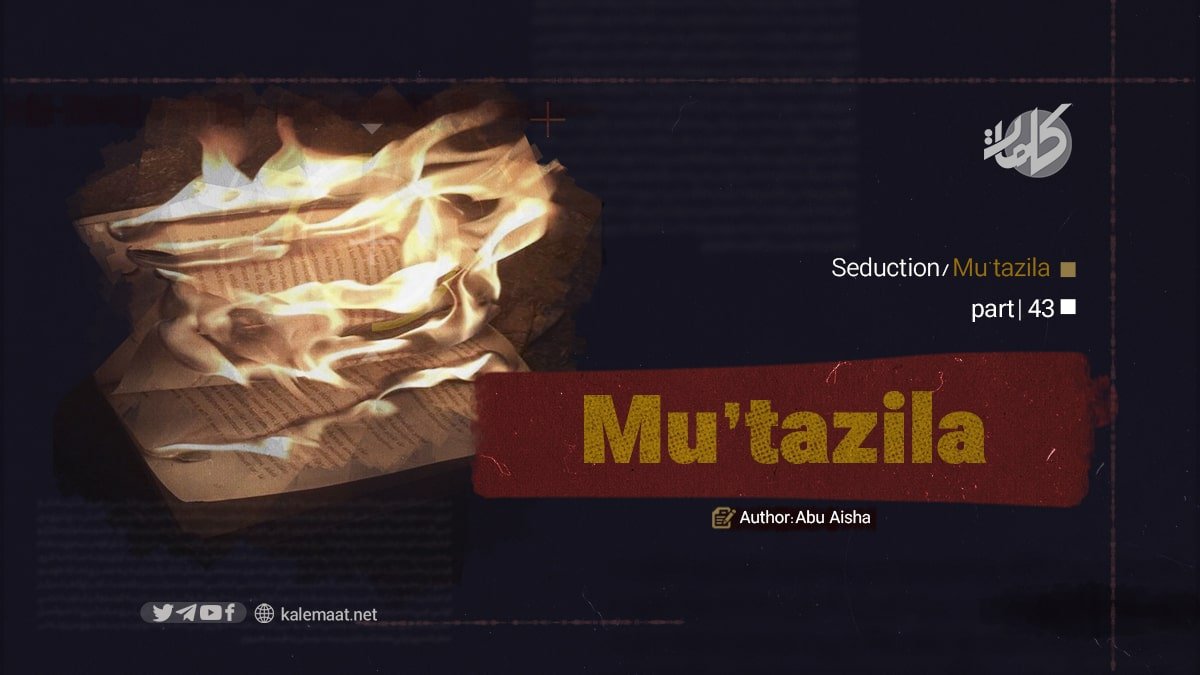Author: Abu Aisha
Mu’tazila (Part 43)
consensus (Ijma’a) of the Ummah
After the death of the Holy Prophet, PBUH, the Ansar gathered in a place called “Saqifah Bani Sa’idah” to choose a person for the caliphate. They wanted to choose a caliph from the Ansar and one of the emigrants. But the appointment of two caliphs caused violence and division, and this is not hidden from anyone.
When the Ansar said that one Caliph from among us should be Ansar and the other Caliph from among you Muhajirin, Hazrat Abu Bakr Siddiq (MAPH) recited this hadith of the Prophet (PBUH) “Imams are from Quraish” and they all agreed on this matter.
The author of the book Sharh al-Mawaqif writes in this regard: “After that, the Companions acted on the content of this hadith that Hazrat Abu Bakr Siddique, may Allah be pleased with him, had argued in the presence of the Companions against the Ansar who disputed about Imamate. They accepted and agreed on it; So, this is a decisive proof that the imams are from Quraysh.
Ibn Hajar, may Allah have mercy on him, writes in Fath al-Bari after stating the above-mentioned hadith: “Muslims have done this for centuries, and consensus has been reached on this matter before there is a dispute.”
Allamah Nawawi, may Allah have mercy on him, in his description of the hadith: «الناس تبع لقریش» “writes: “These hadiths and their like are clear proofs that the caliphate is exclusive to the Quraysh and can’t be established for anyone other than them, and during the time of the companions and the followers and after them, there was a consensus on this with authentic hadiths.”
The sayings of scholars
Imam Malik, may Allah have mercy on him, says: “The imam must be Qureshi and no one else’s ruling is valid, unless he invites to Imam Qureshi”
Imam Ahmad bin Hanbal, may Allah have mercy on him, says: “The caliphate is among the Quraysh, as long as two people remain, no one can get involved with them in this matter or stop obeying them, and we will not recognize it for anyone else until the Day of Judgment.”
Qazi Ayyaz, may Allah have mercy on him, says: “The condition that the Imam is from Quraysh is the viewpoint of most scholars; Hazrat Abu Bakr and Umar, may Allah be pleased with them, gave evidence to the Ansar with this statement in the place of Saqifa, and none of them denied this hadith. Scholars have considered this issue as a matter of consensus, and no word or action has appeared from any of the predecessors to contradict what was said, nor did those who came after them.
“So, imam should be Qureshi and no other than them; Of course, it is not reserved for Bani Hashem and the children of Hazrat Ali, that is, it is a condition that the Imam is from Quraysh; Because the Prophet, peace be upon him, says: “Imams are from Quraysh.” Although this hadith is a single story; But when Hazrat Abu Bakr (may Allah be pleased with him) argued against the words of the Ansar, no one denied it. So, a consensus was reached and no one else has opposed this condition except the Khawarij and a group of Mu’tazila.”
Imam Shah Waliullah Dehlawi, may Allah have mercy on him, has stated the reason why the Imam is from Quraish:
“The appropriate reason for this is that the truth that Allah Almighty revealed through the language of the Prophet, PBUH, was in the language of the Quraysh and according to their habits, and most of the values and limits that were determined were the same as those that existed with them and what for many they were prepared from the precepts, that was what was found among them. The Quraish were more based on it and were more attached to these issues than other people; Another thing is that the Quraish are from the people of the Prophet, PBUH, and are part of his party, and they have nothing to be proud of except for the promotion of the religion of the Prophet, PBUH. So, it was more likely that they did the affairs of Sharia and adhered to it. Another thing is that it is necessary for the caliph to be one of those people who don’t disobey him because of the majesty of his lineage. Because someone who does not have a good lineage, people consider him lowly and humiliated, and he should be one of those who are known for leadership and honor, and his people can gather men and go to war in times of need, and another thing is that his people are strong people so that they should support him and help him and sacrifice their lives to defend him, and these matters have only been gathered in the Quraysh tribe, especially after the Prophet, peace be upon him, was sent and the status of the Quraysh rose with his sending.
In the book “Islamic Emirate and Systems” it is stated: The seventh condition for an imam is that he must be Qureshi, neither Hashemite, nor Alevi, nor infallible; Because the Prophet, peace be upon him, said: “The Imams are from Quraysh” and the Ansar also handed over the caliphate to the Quraysh with this hadith, and with this statement, the saying of the Harms is invalidated, as they say: a non-Qureshi also has the authority to lead the Imamate. Qureshi deserves it.



